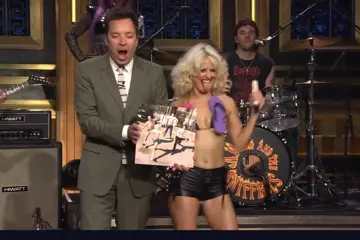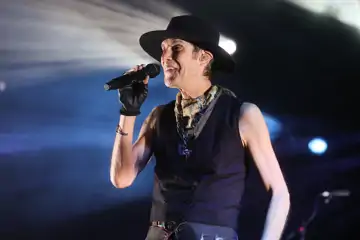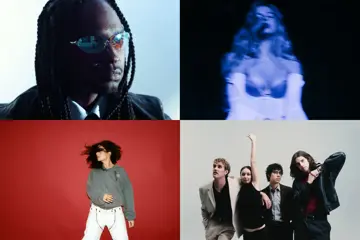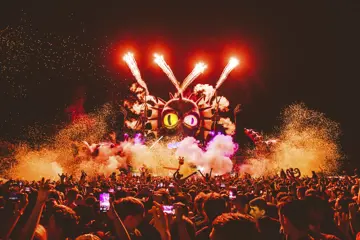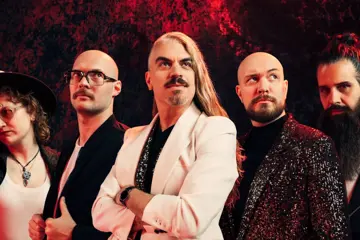"When we first started down this road, two-and-a-half years ago, it was before Laverne Cox, before Caitlyn Jenner, before Transparent, before Obama used the word 'transgender' in his [State of the Union] speech; we had no idea this was about to become part of the zeitgeist," says Sean Baker. The 44-year-old filmmaker is talking about his latest film, Tangerine, a wild comedy that throws itself into the world of transgender streetwalkers in Los Angeles.
Baker lives a half-mile from West Hollywood's "infamous" Santa Monica and Highland intersection, a corner exclusive to trans sex workers. "Even before we knew what our film was — we didn't know the story, or the genre — we knew that, at the end, all of the characters would converge on Donut Time, because that is the landmark for that corner," Baker explains.
To make Tangerine, Baker slowly immersed himself in a foreign world, as he'd done on all his previous pictures: 2004's Take Out, about illegal Chinese immigrants working the fast-food delivery; 2008's Prince Of Broadway, about bootleg-shillin' street hustlers; 2012's Starlet, about California kids whose McJobs are in porn. Only this time, he and co-writer Chris Bergoch were "two cisgender white males" walking into a gender-fluid, multi-racial realm. "At first, everyone assumed we were either johns or police," Baker laughs.
Eventually, at LA's LGBT Center, they met Mya Taylor and Kiki Rodriguez, who'd become the film's stars. "I knew at that moment that we had our dynamic duo: their friendship, the way they interacted with each other, the way they'd both compliment and insult each other, finish each other's sentences."
The resulting film is political in its existence, but never political in its ways. "There's nothing worse than a preachy movie — I call them 'Plight Of' movies." Instead of feelbad tragedy, Tangerine is a wild comedy — "[Taylor] wanted it to play as well for the girl on the corner as the multiplex goer in Middle America as the film festival patron in Europe" — that rattles along with an infectious energy.
That's boosted by a trap-blasting soundtrack, which Baker solicited via cruising SoundCloud for DIY beatmakers. "When I presented the film to my producers, I said, 'There will literally be no music, so don't worry about the budget for music!' So when I suddenly have 35 tracks of music, they wanted to wring my neck!"
Baker's producers were the Duplass brothers, who set a strict budget of $100,000. To accommodate such — and knowing that "audiences associate hand-held, non-lit video with reality, stemming back to the home-videos that were shot of us when we were kids" — Baker made the radical decision to shoot Tangerine on an iPhone, with a special "prototype 'anamorphic adapter' lens" attached. This meant they could shoot on LA streets inconspicuously, heightening that sense of vérité.
"I'd love to say that it was all intentional, that we knew that using a phone would aid us to 'blend in' as guerrilla filmmakers, but to be honest it all really just stemmed from the fact that we had so little money. I love the fact that people hold us up as a beacon of democratising filmmaking, and that it's inspiring other people to make their own films. But, trust me: if I had the money, I would've shot it on film."


